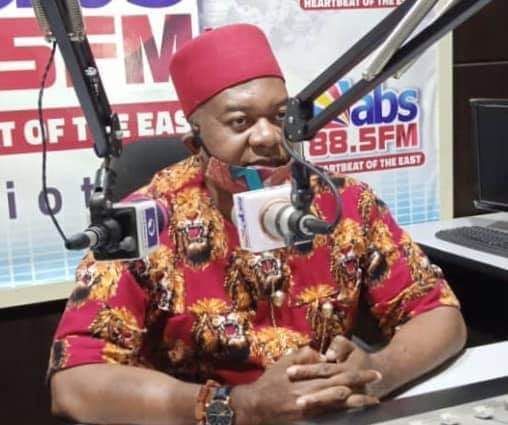We live in exciting and interesting times. Major disruptions continue to occur across different sectors, driven by technology, innovation and globalization. Tom Godwin, a top flight media manager, while discussing the changing global business environment, pointed out the mind-blowing disruption that is taking place in some sectors.
He mentioned, for example, Uber, the largest taxi company in the world, which owns no vehicles and Amazon, the largest bookstore in the world, which owns no bookshops. He concludes that ‘something interesting is happening’.
The disruption in the media sector has been unprecedented, especially in the digital era. The language spoken today is no longer that of programmes and programming but of content, content provision and distribution.
The present broadcast media eco-system in Nigeria poses huge threats but at the same time presents big opportunities for practitioners. In the digital broadcast industry, it will appear that state-owned media organizations are the most affected in several ways.
First, the global and national economic challenges have led to massive reduction in government subvention. The reduced subvention has triggered a wide expectation for more internally generated revenue that is not readily realizable.
Again, advertising revenue continues to decline as advertisers appear to favour media stations on cable networks such as DSTV, GOTV, StarTimes etcetera, which guarantee wider reach and audience. With the existing licensing, operational and regulatory framework by the National Broadcasting Commission (NBC), terrestrial television with its localised/limited reach appears ‘dead’, and will always struggle against digital broadcast media on digital platforms.
Hence, state media, with reduced subvention and reduced advertising revenue, are not able to fund the production of quality content which attracts and helps retain viewership, neither are they able to attract and retain creative staff. Suffice it to say that if state owned broadcast media do not wake up to the realities of the times, they may soon find themselves in the media graveyard, just like their newspaper counterparts.
Furthermore, many state owned media still suffer the choking effects of state control, including editorial interference and control. And, just like the laws setting them up, which may have become obsolete, state- owned broadcast stations suffer from near – colonial and military era hangover, extending to their bureaucratic organograms incorporating obsolete job roles. These now require updating. A lean and flat organogram is recommended.
In addition, the civil and public service mindset have made many state -owned state media to become talent graveyards. They lack the dynamism, creativity and flexibility required to compete in today’s digital media world. Other issues hindering the survival of state-owned TV stations include the analogue nature of their broadcast equipment and over bloated workforce.
What state-owned broadcast media must do differently to survive is to develop new ways of thinking and new ways of doing things. Some of these challenges have to be addressed by the stations themselves. In Nigeria, Lagos Television (LTV), and Ogun State Television (OGTV) are the only two state-owned television stations on the DSTV cable platform. This situation is most unfair as it bestows on the two stations superior advantages of wider audience and increased advertising revenue.
Other state-owned stations make do with the 3KW transmitter and regional licence that NBC permits. This surely cannot be said to be a level playing field as the disadvantaged state stations that are denied access on the DSTV platform still carry the same operating costs by way of paying staff salaries and allowances, equipment maintenance, content production, diesel and other costs.
For example, at the Anambra Broadcasting Service, despite investments by Governor Willie Obiano in new digital equipment, construction of new digital studios, renewed focus on quality content production and other improvements, it has not been possible to secure approval to host the ABS TV on the DSTV platform. This is despite repeated visits, applications and meetings with the DSTV management, including submission on hard drive of content types produced by ABS as demanded by DSTV. The story has been and is still that there are no new available channels on the DSTV platforms.
To survive, the regulator, National Broadcasting Commission, National Assembly, Federal Ministry of Information, Nigeria Governors Forum, Radio, Television and Theatre Workers Union (RATTAWU) and other stakeholders should intervene by making it a matter of policy for DSTV and other cable platforms in Nigeria such as GOTV, StarTimes etc to allocate channels to state-owned TV stations on their respective platforms.
Opening up the cable TV space for state-owned TV stations to play in, should form one of the key proposals in the ongoing consultations by the National Broadcasting Commission, which is seeking to review the 6th edition of the Nigeria Broadcasting Code.





Comments are closed for this post.